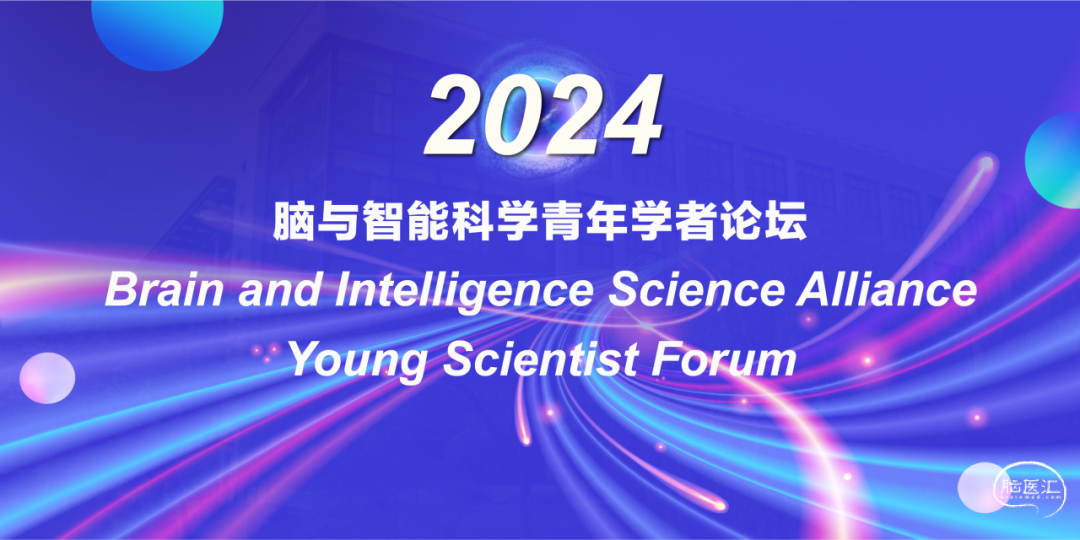
本次会议面向来自不同国家和地区的、脑科学和人工智能领域的博士、博士后及其他青年学者。论坛涵盖了脑与智能科学的多个前沿主题,如计算神经科学、大脑网络模型、智慧医疗等,邀请了来自复旦大学、剑桥大学、悉尼大学、柏林夏洛蒂医学院及昆士兰大学等五所高校的杰出青年学者做学术报告,并设置了海报展示的环节,为青年学者提供了与专家交流及展示自己的研究成果和想法,获得同行反馈的机会,同时也为青年学者之间寻找潜在的国际合作者以启动创新研究项目搭建了一个平台。
This conference is aimed at PhD students, postdoctoral researchers, and other young scholars from different countries and regions in the fields of brain science and artificial intelligence. The forum covers multiple interdisciplinary topics in brain and intelligent sciences, such as computational neuroscience, brain network modeling, and intelligent healthcare. It features distinguished young scholars from Fudan University, the University of Cambridge, the University of Sydney, Charité – Universitätsmedizin Berlin, and the University of Queensland, who will present academic reports, and also includes a poster presentation session, providing young scholars with opportunities to interact with experts, showcase their research findings and ideas, and receive feedback from peers. Additionally, it serves as a platform for young scholars to identify potential international collaborators and initiate innovative research projects.
论坛信息
FORUM INFORMATION
主办单位:
复旦大学类脑智能科学与技术研究院
中国神经科学学会神经调控基础与转化分会
协办单位:
“计算神经科学与类脑智能”教育部重点实验室
“计算神经科学与类脑智能”111创新引智基地
“科创中国”复旦类脑智能创新基地
国际合作方:
剑桥大学、 柏林夏洛蒂医学院、悉尼大学、昆士兰大学
时间:2024年7月8日-7月9日 09:00-18:00
地点:上海市浦东新区张衡路825号复旦大学张江校区类脑大楼一楼(原图书馆)
Time: 8-9 July, 2024 09:00-18:00
Location:
1/F, ISTBl office building (former Library), Zhangjiang Campus, Fudan University, No .825 Zhangheng Road, Pudong district, Shanghai
☀️ 友情提示:来张江路上注意防暑降温,多喝盐汽水
会议主席:王守岩
学术委员会:冯建峰、Sharon Naismith、Pankaj Sah、Andreas Heinz、Valerie Voon、Wolf-Julian Neumann、Deniz Vatansever
组织委员会:马宁宁、耿书捷、Shawn Kong、Melissa Gül Halil、Shihan Peng、Joern Alexander Quent、Christopher Weirich
论坛议程
FORUM AGENDA
Workshop Day 1 : 8th July
Opening
09:00-09:10
Welcome
Speaker:Shouyan Wang
上午场
09:10-10:10 (50+10 mins)
Keynote: down-sampled NI-AI lecture
Speaker:Michael Zhang
10:10-10:25 Group Photo
10:25-10:40 Tea Break 🍉
10:40-11:10
Title: A domain-general cognitive core in the human brain
Speaker:Moataz Assem, Cambridge
11:10-11:40
Title: Right Lateralization of Beta synchrony in the stopping network: Neurophysiological insights in Parkinson’s disease
Speaker:Hakimeh Pourakbari, Aslsardroud Charité Berlin
11:40-12:10
Title: Associations of high-sensitivity C-reactive protein with neuropsychological outcomes and cerebral white matter hyperintensities in older adults at risk of dementia
Speaker:Rachael Yu, Sydney
12:10-13:10 Lunch 🥗
下午场
13:10-13:40
Title: Modulation of pedunculopontine input to the basal ganglia relieves motor symptoms in Parkinsonian mice
Speaker:Caixia Lin, University of Queensland
13:40-14:10
Title: Multimodal characterization of imaging biomarker heterogeneity in patients with Alzheimer’s disease
Speaker:Ersin Ersözlü, Charité Berlin
14:10-14:40
Title: Integrating physiological sensor data to predict painful events and intensity in people with chronic pain.
Speaker:Sabrina Schaly, Sydney
14:40-15:40
Tea Break & Poster Presentation 🍉
16:10-16:40
Title: Disease-specific changes in neurotransmitter profiles in frontotemporal dementia: implications for behavioral symptoms
Speaker:Tao Chen, Sydney
16:40-17:00
Best Poster Award
Workshop Day 2 : 9th July
上午场
09:00-09:10
Welcome
Speaker:Shouyan Wang
09:10-9:40
Title: Virtual Reality in Addiction Medicine
Speaker:Alva Lutt, Charité Berlin
9:40-10:10
Title: Validating a Fast Deep Learning Framework for Fiber Orientation Distribution Enhancement with Single-Shell Low Angular Diffusion Acquisitions
Speaker:Xinyi Wang, Sydney
10:10-10:25 Tea Break 🍉
10:25-10:55
Title: Forget fear: suppressing memory during Pavlovian fear extinction
Speaker:Molly Salome Egan Rowlands, Cambridge
11:25-11:55
Title: Neuromodulatory tools for stroke recovery in mice
Speaker:Montana Samantzis,University of Queensland
11:55-13:00 Lunch 🥗
下午场
13:00-13:30
Title: Understanding ambiguous speech in context
Speaker:Victoria Poulton, Cambridge
13:30-14:00
Title: Invasive neurophysiology and whole brain connectomics for neural decoding in patients with brain implants
Speaker:Timon Merk, Charité Berlin
14:30-15:30
Tea Break & Poster Presentation 🍉
15:30-16:30 Penal discussion
16:30-16:45 Conclusion
注:实际请以现场为准,上文议程仅供参考
- 论坛参会方式 -
会员类型 | 在线优惠期 (7月1日前) | 现场注册期 |
CNS普通会员 | 400 | 500 |
非会员 | 500 | 600 |
CNS学生会员及 复旦大学师生 | 100 | 200 |
学生非会员 | 300 | 400 |
报名注意事项 How to Application
1.现场注册请出示学生证。博士后,住院医师,实验室技师不属于学生范畴。
2. 发票默认开电子发票,会后一个月内完成开具并发送至注册缴费邮箱,邮件发件人为“诺诺网”
3.会议现场上不得散发任何广告和宣传资料,为了保护知识产权,会场内禁止拍照录像,请您文明参会,遵守科学道德规范。
会议注册费 Application Money
会议采用在线注册交费,网址:
https://meeting.cns.org.cn/2024BISA/
在线优惠注册截止日期:7月1日
若临时有变化不能参会,请以邮件形式正式通知学会秘书处treasurer@cns.org.cn
取消参会:会议召开前1个月取消参会,退100%注册费;会议召开前2周取消参会,退50%会议注册费;会议召开前1周取消参会,不退注册费。
支付方式 How to Apply
线上缴费:支付宝,微信,网银(手机微信打开链接只能用微信和网银支付,不能使用支付宝,公务卡支付请确认已绑定支付宝或网银)
银行转账:转账必须备注参会者的姓名,并且务必在网站上注册——点击在线支付——选择银行转账,您将看到银行转账信息,否则无法更改缴费信息。
转账完成后,请将参会名称、转账凭证、参会姓名、联系电话等发送至treasurer@cns.org.cn,以方便开具会议注册费发票。
现场注册:支持支付宝,微信,现金。
会务组联系方式 Contact Us
联系电话:+86-021-55665563(马老师)
注册联系人:李超 lichao@cns.org.cn
当地会务联系人:
马宁宁 istbiforum@outlook.com
Tel: +86-021-55665563(Dr.Ma)
E-mail: lichao@cns.org.cn
istbiforum@outlook.com
- 摘要海报提交 -
摘要提交 How to Give Us
为给参会者提供更加充分地交流最新研究成果的机会,本次会议将设置墙报展示,并从中择优口头报告。具体要求如下:
(1)请直接按照墙报形式准备,凡2024年07月以前未正式发表论文均可应征。墙报模板见注册网站(下拉至“提交摘要”栏目):
https://meeting.cns.org.cn/2024BISA/
Poster用中文或英文均可。请提交pdf格式。
(2)截止日期为:2024年07月01日,逾期概不接受。若未交纳会议注册费稿件将不被接受。
(3)投稿网址:
https://meeting.cns.org.cn/2024BISA/
请在注册参会后——用户登录——在“用户中心”点击提交/修改摘要
嘉宾简介
SPEAKERS
 | Moataz Assem |
Dr. Assem is a Research Associate at the MRC Cognition and Brain Sciences Unit and the Isaac Newton Trust Research Fellow in Neuroscience at Murray Edwards college. He has been recently awarded the Wellcome Trust Early Career Award and is the recipient of the 11th Frith Prize from the Experimental Psychology Society for his PhD work. His research investigates the brain basis of human intelligence. Specifically, he investigates how a core multiple-demand (MD) circuit in the human brain organises our thoughts and behaviour. His research stands out for its anatomical precision, employing state of the art brain imaging approaches (Human Connectome Project style fMRI, intracranial EEG and more recently concurrent TMS-fMRI). Dr Assem is multidisciplinary trained in medicine (Alexandria University, Egypt), biomedical engineering at (Bogazici University, Turkey and MIT, US), and cognitive neuroscience (Cambridge). In parallel, since 2015, he has been involved in coordinating both the Egyptian and International Brain Bee competitions, the neuroscience olympiads for high school students.
 | Molly Salome Egan Rowlands |
I am a final year PhD student at the MRC Cognition and Brain Sciences Unit, supervised by Prof. Michael Anderson, associated with Pembroke College, University of Cambridge. My doctoral research explores the intersection of memory and emotional regulation under states of threat. Using a diversity of methods, spanning neuroimaging, behavioral studies, and computational modeling, I investigate the potential role of explicit emotional regulation in Pavlovian fear extinction. My research offers novel insights into memory suppression's potential role in facilitating fear responses during extinction, with potential theoretical implications for century old cognitive theories, and practical implications for anxiety and PTSD treatments.
 | Victoria Rian Poulton |
I am a PhD student at the University of Cambridge in Medical Sciences and Cognitive Neuroscience. My research uses non-invasive neuroimaging (EEG and MEG) to bridge between psycholinguistics and neuroscientific research on human language comprehension. I have presented my work on neuroimaging applications in the study of language function at local and international conferences. My current projects focus on the mechanisms of understanding meaning (semantics) from ambiguous speech.
 | Alva Lütt |
I am a postdoctoral scientist and psychiatry resident in the Psychiatric University Hospital Charité at St. Hedwig-Hospital in Berlin. As head of the Virtual Reality (VR) research group, I am Principal Investigator of several studies in this field, with a special focus on VR-based therapeutic and diagnostic approaches for patients with alcohol use disorder.
Since March 2023, I am a fellow of the BIH Charité Junior Digital Clinician Scientist Program. In 2018, I completed a research internship at the Brain and Mind Research Institute of the Weill Cornell Medical College in New York City. This year I will do a research exchange in South Korea as part of a DFGfunded international research cooperation with the Samsung Medical Center, Sungkyunkwan University in Seoul. To establish international collaborations, as would be possible through the BISA Young Scientist Forum, has always been of great interest and importance to me.
 | Ersin Ersözlü |
Ersin Ersözlü studied between 2013-2019 medicine at the Istanbul Faculty of Medicine of Istanbul University, including the practical last year at the Ludwig-Maximilians-University (LMU) Munich through an Erasmus+ Internship Program, where his interest and insight of clinical neuroscience has further grown. He started his medical doctorate on the topic “functional resting-state alterations in relation to lifetime experiences in participants with Alzheimer’s disease” at the LMU Munich after completing his medical degree. He then began to work in the department of geriatric psychiatry and developmental disorders in kbo-Isar-Amper-Klinikum Munich-East, a teaching hospital of LMU Munich, where he worked as resident physician for three years. Since September 2023, he continues his residency in psychiatry, working as study physician and scientific staff in the outpatient clinic for geriatric psychiatry of the department of psychiatry and psychotherapy in the Campus Benjamin Franklin and Campus Berlin Buch at Charité - Universitätsmedizin Berlin.
 | Hakimeh Pourakbari Aslsardroud |
I’m Hakimeh Pourakbari Aslsardroud, from
Iran, and currently in the third year of my PhD journey. I am a committed engineer and researcher specializing in Movement Disorders and Neuromodulation. My journey began with a foundation in Mechanical Engineering, followed by a Master's in Mechatronics Engineering, leading me to pursue a Ph.D. at the esteemed Charité Berlin.
I am dedicated to uncovering insights into the underlying mechanisms of inhibitory networks in Parkinson's disease through the integration of LFP (Local Field Potentials) and MEG (Magnetoencephalography) techniques. My aim
is to contribute to our collective understanding of this complex neurological condition.
 | Timon Merk |
September 2017, Dual Study Electrical Engineering B.Eng.
March 2020, Computational Neuroscience M.Sc. Technical University Berlin
Since 2020, PhD with Prof. Dr. med. Wolf-Julian Neumann “Movement Decoding for electrophysiology-based intelligent adaptive deep brain stimulation in Parkinson’s disease”
 | Rachael Yu |
Rachael is a PhD student at the University of Sydney, Australia. She is interested in using basic science to understand the pathogenesis of neurodegenerative processes, particularly in Alzheimer’s Disease. Key research themes being explored in her PhD include blood-based biomarkers, neuroinflammation and vascular pathology.
 | Sabrina Jasmin Schaly |
As a postdoctoral researcher at the University of Sydney's Biomedical Engineering faculty, I specialize in developing innovative assistive devices for people with cerebral palsy. With a track record of published research papers and notable contributions to the field, I am dedicated to leveraging cutting-edge technologies to enhance the quality of life for those with neurological disorders. Prior to my current role, I spearheaded the development of a gene and drug-eluting stent, demonstrating my proficiency in translating research findings into tangible solutions with real-world impact.
 | Xinyi Wang |
I am a year 3 PhD student at the University
of Sydney. My research focuses on validating deep learning methods for Fiber Orientation Distribution enhancement in clinical applications, such as fixel-based analysis.
 | Tao Chen |
Tao Chen holds a Master of Science in Cognitive Neuroscience from the Institute of Psychology at the Chinese Academy of Sciences. Now, he is a current Ph.D. candidate in Cognitive Neuroscience at the University of Sydney, supervised by Professor Muireann Irish, a fellow of the Academy of Social Sciences in Australia (ASSA) and the previous president of the Australian Cognitive Neuroscience Society.
Tao is dedicated to exploring flexibility in neurodegenerative and psychiatric disorders through dynamic, causal, and network analyses, utilizing multimodal brain imaging, Experience Sampling Methods (ESM), and behavioral experiments. Tao has already published >10 papers as first author in prestigious journals, including Clinical Psychological Science, Journal of Affective Disorders, and Schizophrenia Research. He is a reviewer for Neuroscience and Biobehavioral Reviews, Neuropsychologia, Psychology, Health & Medicine, and Personality and Individual Differences.
 | Caixia Lin |
Caixia Lin received a Bachelor of Medicine from Xi’an Jiaotong University in 2015 and an MSc from Peking Union Medical College in 2018. After that, she joined the Synaptic Plasticity Laboratory headed by Professor Pankaj Sah for a PhD study at Queensland Brain Institute, the University of Queensland. She obtained her PhD in 2022. Since then, she has been working as a postdoctoral research fellow in the Sah lab. Her research aims to investigate the neural circuits related to movement disorders.
 | Montana Samantzis |
Montana completed her honours degree at the University of Queensland receiving first class honours and the university medal for her achievements. She used sophisticated imaging techniques to investigate the use of optogenetic and pharmacological methods to induce sleep. She then began her PhD at the Queensland Brain Institute under the supervision of Dr Matilde Balbi, where she is investigating how neuromodulatory tools can influence neuronal network patterns and behaviour in health and disease. Throughout her PhD she has been the recipient of several awards including the Alastair Rushworth Research Fund, and Bionics QLD Young Neuroscientist Prize. Her research uses a wide range of techniques including widefield cortical imaging, in vivo electrophysiology recordings, and behavioural assessments in order to further our understanding of the effects of non-invasive brain stimulation.
声明:脑医汇旗下神外资讯、神介资讯、神内资讯、脑医咨询、Ai Brain 所发表内容之知识产权为脑医汇及主办方、原作者等相关权利人所有。
投稿邮箱:NAOYIHUI@163.com
未经许可,禁止进行转载、摘编、复制、裁切、录制等。经许可授权使用,亦须注明来源。欢迎转发、分享。




